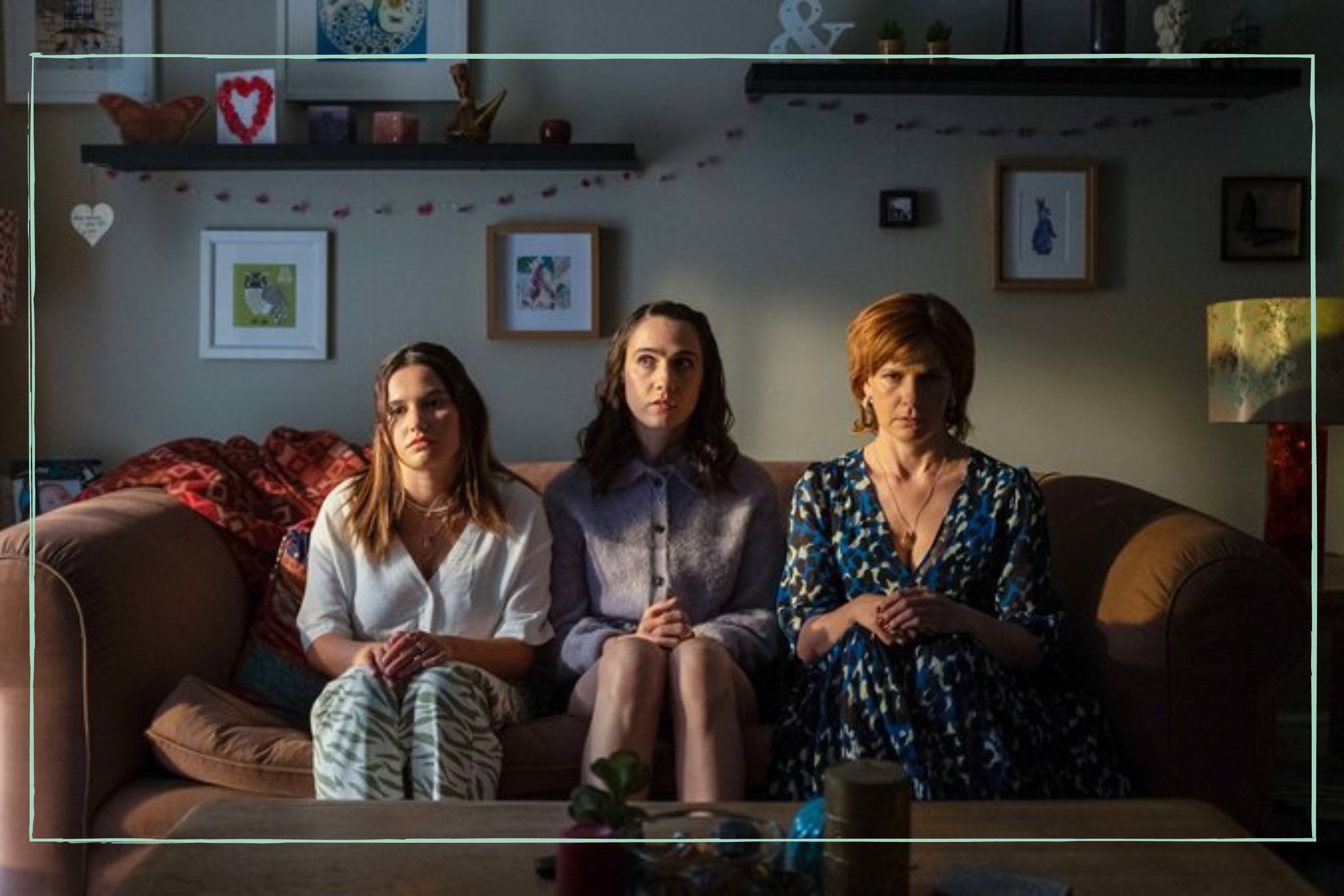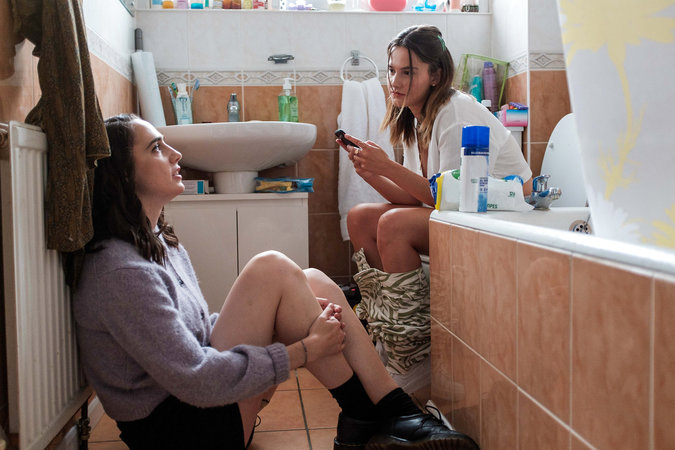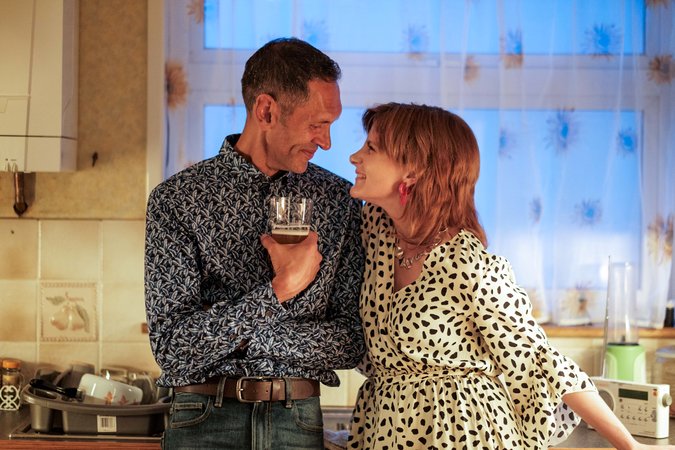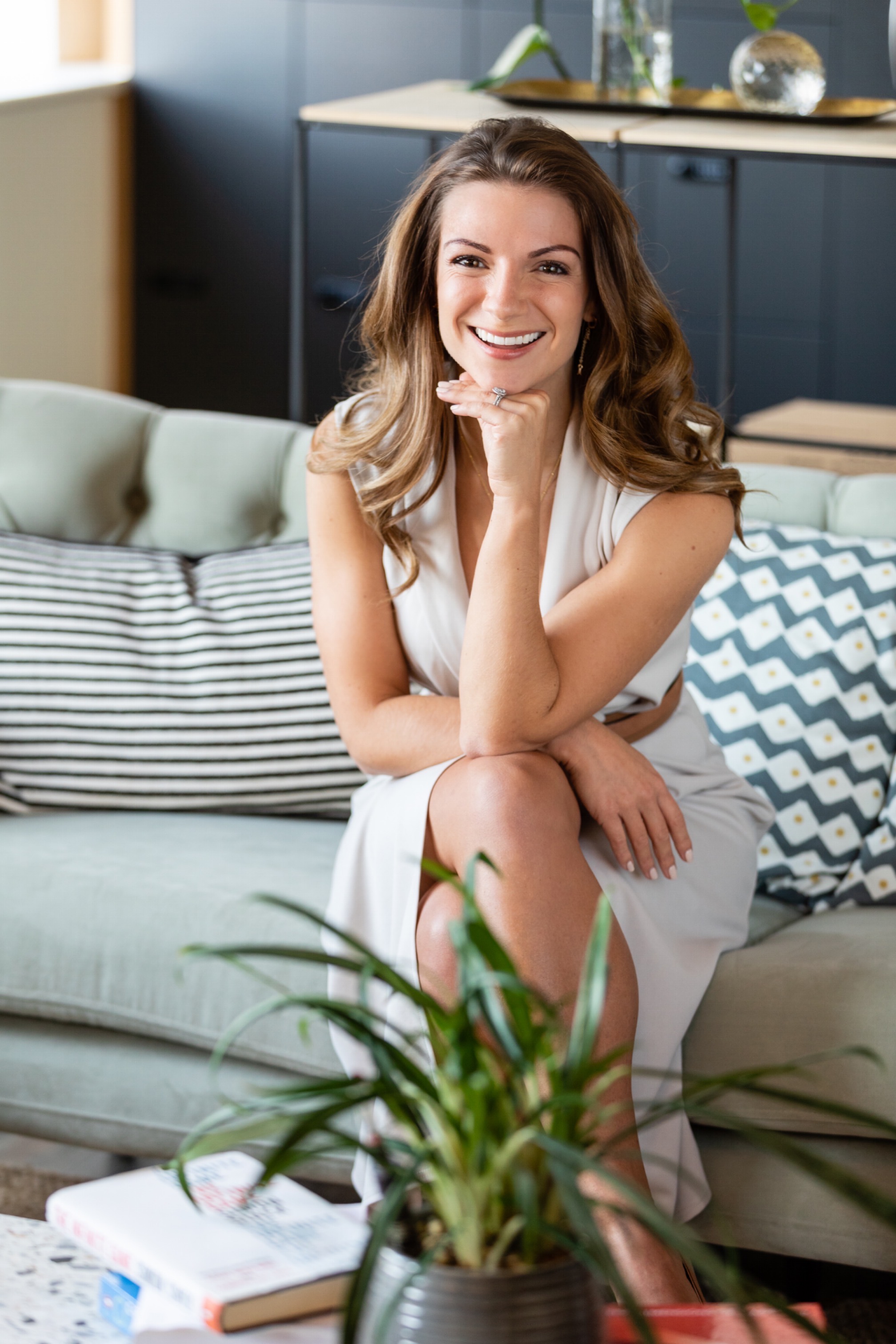BBC Three's Such Brave Girls shows us how the mistakes our mothers make will continue to be passed down to our daughters - it's uncomfortable viewing, but our TV critic loved it
It's essential - but sometimes uncomfortable - viewing


Such Brave Girls is a BAFTA-winning BBC comedy brilliantly balancing grotesque humour among intergenerational trauma - it's uncomfortable viewing for all the right reasons.
Kat Sadler is the mastermind behind Such Brave Girls, a seriously ground breaking comedy that packs a lot into its six short episodes. As a comedian, writer and actress, Sadler created the series with her sister, Lizzie Davidson, for BBC Three. The sisters' talents were rewarded when they took home a BAFTA for best Scripted Comedy at the 2024 awards. Even more good news comes in the form of the show being renewed for a second series - we are counting down the days for the next instalment.
The short episodes come in at the 25-minute mark, and are all available to view together on BBC iPlayer. Filmed across Wirral and Knowsley, the sisters also both star in the show that Sadler has described as therapy for the duo, and an exploration of "Trauma and dark subject matters that are deeply personal to myself and my sister."
Taking some heavy themes and turning them on their head in the comedy space, offers viewers a unique balance of humour while addressing issues that create difficult viewing. In breaking down the issues (including the mental health issues younger people face) highlighted, we sought the perspective of British Association for Counselling and Psychotherapy (BACP) accredited therapist Charlotte Braithwaite.
This expertise offers insight into how the mistakes of mothers continue to be passed to daughters, and how this isn't their fault.
What Such Brave Girls teaches us
Most importantly for us, Such Brave Girls demonstrates how easy it is for mothers to pass negative messages to their daughters. And, how this can continue for generations because mothers usually don't even know they're doing it.
It subtly handles the concept of intergenerational trauma, which left us wanting to understand why this happens and what we can do to stop it. It also challenged our feelings towards mental health, and accepting the different ways people choose to deal with their psychological issues.
Parenting advice, hot topics, best buys and family finance tips delivered straight to your inbox.
How does it teach us?
During the opening seconds of Such Brave Girls we immediately learn that Billie and Josie's mum, Deb (Louise Brealey on stunning form), is putting on a show for a man she's desperate to impress. The steely look at Josie when discussing the upcoming meeting with suitor Dev made us wince.
Despite the need to keep her eyes shut when she has sex with him, Deb has all eyes on Dev's massive house (she definitely said house). When her daughters meet him for the first time, it's evident there's an expectation for them to be seen and not heard, and in no way to come across as mentally unwell.
Collecting second daughter Billie from work sets the tone for the entire series. Deb shows a complete lack of self-awareness as she insists Billie absolutely shouldn't "Tie your self-esteem to a man," during a conversation about her ex. A complete contradiction. Not only is she teaching her daughters they need a man to be happy, but it's evident Deb will throw her daughters to the wolves for a man (and a massive house). As the series progresses, we watch as they subsequently go to dangerous and painful lengths to keep everyone but themselves happy.

It's not unusual for similar messages to be passed down through generations. Feminism has attempted to step in to bring women and girls to believe there is more freedom to be had than previous generations experienced. But it's still not enough.
Those of us growing up in the nineties and noughties would've still watched problematic Disney Princesses only find fulfillment with the love of the right man. The heroin chic models on The Clothes Show weren't far behind to teach us we had to be rake-thin to be acceptable. Most of our mothers would've had similar messages pushed on them. Magazines filled our heads with quizzes that would give us the absolute truth about whether our crushes fancied us back.
Like Deb, we might think we won't let our own daughters pass on unhealthy messages, but evidence suggests most parents aren't aware they are doing it. This means breaking unhealthy cycles is difficult to do, and can result in repeated destructive patterns and mental health struggles.
BACP-accredited therapist Charlotte Braithwaite explained why this happens. Charlotte said "As human beings, it is inevitable that we will all make mistakes and experience trauma to varying degrees across our lifetime.
"However, if we do not possess the self-worth or tools to process difficult experiences and emotions, they are unconsciously repressed and can manifest as symptoms such as anxiety and depression, leading to poor mental health."
She added "This shapes our beliefs, behaviours and relationships, which we project on the world and people around us. Following generations internalise these patterns and often repeat them without conscious awareness.
In Such Brave Girls, this is illustrated through Deb, who projects her abandonment struggles from her husband's leaving onto daughters, Josie and Billie, who inherit a codependent need for male approval and the belief that they must hold on to relationships at whatever cost."

Society compounds negative messages
The blame doesn't lay at the feet of mothers who might inadvertently pass on unwanted messages to their daughters. Rather, it sits at the feet of a society that enforces it.
The world we live in is set up to be easier and for those in a partnership. Getting a mortgage is, in most instances, only accessible in for couples. Various allowances also exist to reward marriage and having children.
There is then a lack of support that ensues when women and their children are left living in the atypical, non-nuclear family. When parental separation occurs, women often have no choice but to immediately seek out another relationship - like Deb.
They're left trying any means possible to hold on to homes they can no longer afford, to keep life as normal as possible for their children. For some, this means having sex with someone for their large house.
Deb's trauma at her first husband walking out on them is palpable to viewers. He went out one day for teabags, and never came back. Josie and Billie are still processing this along with her. Billie's notion that "He's like a period, he'll come when he's ready," proves there is little acceptance surrounding their situation.
Although again tackled with humour, there is a hint of underlying sadness that comes with this sentiment. Kat Sadler has herself addressed this on-screen family dynamic. In a Q&A with the BBC ahead of the series airing, she weighed in on Deb. Her primary belief is that Deb, like all mothers, simply does the best she can with the hand she's dealt.

"I think Deb is trying her best to keep the house and stop the fall of Rome happening, meanwhile Billie and Josie are too self-centred in their own worlds to notice," she said.
She continued "Josie feels victimised by her mum, but hasn’t stopped to notice how much her mum is doing to protect her from the harsh reality of the real world. What they do all have in common is they’re all united in their quest to be loved, by any means necessary."
With more potential trauma piled on the unwitting Josie and Billie by a possible unwanted pregnancy, Charlotte Braithwaite explained the concept of intergenerational trauma raised by the series. She told us intergenerational trauma harboured by a family can be passed down through actual DNA to affect future generations.
Charlotte suggests "Traumatic experiences, both on a personal and collective level, evoke a stress response within the body, increasing cortisol and adrenaline that, if prolonged, weakens the immune system and impacts our physical health."
To clarify, she added, "The impacts of mental health through the mind-body connection is not new, but research into epigenetics suggests that trauma can influence the expression of our DNA and can therefore literally be passed down through generations via our biology."
If society is shaping the future of any future children of Billie and Josie, their own genetics might just add to them re-shaping themselves again, in the form of their own offspring.

Mental health is messy
The mental health depiction in Such Brave Girls is pure perfection in the following ways:
- Plenty of frank conversations about it take place in bathrooms while someone is having a poo, because that's life.
- The darkest of humour is used to portray just how messy working through mental health issues can be.
- There's no reason mental health and humour can't collide.
- Kat Sadler unapologetically challenges outdated tropes that women need to sit and look pretty, being mentally ill out of sight.
- She brilliantly owns the way she's chosen to deal with her struggles in the form of comedy.
- Her reason for mixing mental health and comedy is her trauma being "deeply rooted in reality and I think that’s what gives us the authority to make the jokes that we’re doing."
- The series is her and Lizzie Davidson's personal catharsis, and theirs to do what they want with.
- Some people will find the portrayal of mental health uncomfortable, and that's OK.
- This might be because it involves women, and something can be learnt from this.
- The show dispels Dev's worries about "catching" Josie's mental health problems.
- The fact that being around people struggling with mental health can be difficult for those near them, is addressed.
From the author

Lucy Wigley - our TV critic's verdict
I loved Such Brave Girls. I came to it for the laughs and definitely hung around for the deeper, resonating themes. I laughed, cried, felt shocked, and felt uncomfortable. The sign of great TV is a series with the ability to incite so many emotions.
Some viewers might just want to watch for the hilarity and impeccable dark humour, which are plentiful and exemplary. The short episodes make this an easy watch to squeeze in at the end of a long day. Sandler is definitely one to watch, and we are keeping everything crossed for a second outing.
Charlotte Braithwaite once again offered her expert opinion on why frank depictions of female mental health on screen can make people feel uncomfortable. She told us, "Whilst there has been huge progress around mental health, there is still a stigma attached to 'taboo' topics and emotions, including grief, sexuality, and suicidal ideation.
Women especially, have long been conditioned to play the role of 'good girl', repressing 'un-lady-like' emotions, such as anger, anxiety and depression."
Charlotte concluded, "When we see female characters on television express raw un-gift-wrapped emotion, we can find ourselves internally conflicted between historical gender conditioning vs authentic human expression.
But this discomfort presents an opportunity to unlearn unhealthy expectations, and open vulnerable conversation that honours truth and what it is to be human."
Such Brave Girls series 2
Speaking about the series returning for series two, Jon Petrie, Head of Comedy BBC, referred to Kat Sandler as one of the "funniest new voices in British comedy," adding it was a "no brainer" to commission another outing.
Sandler said "it's a sick pleasure that these horrible characters get to live another day and I'm now contractually obliged put them through hell again. The BBC are masochists and I’m very grateful."
If our analysis is enough to make you want to tune in if you haven't already, get yourselves over to BBC iPlayer now. All episodes are currently available for your blackly humorous pleasure.
For more shows that bring the laughs, we strongly recommend family comedy Here We Go and the female-centred Henpocalypse!. Coming-of-age comedy Boarders is also one to add to the list - all three shows can be found on BBC iPlayer.

Charlotte Braithwaite is a Psychotherapist, Leadership Coach and the founder of Be Conscious. She is also the co-founder of the Network for Younger Counsellors & Therapists – a community that champions millennial mental health professionals. Charlotte specialises in existential crisis, trauma healing, revolutionary relationships and evolutionary leadership, feeling fulfilled by helping people connect to their authentic self and conscious to make positive change in life, in love and in leadership.

Lucy is a mum-of-two, multi-award nominated writer and blogger with six years’ of experience writing about parenting, family life, and TV. Lucy has contributed content to PopSugar and moms.com. In the last three years, she has transformed her passion for streaming countless hours of television into specialising in entertainment writing. There is now nothing she loves more than watching the best shows on television and sharing why you - and your kids - should watch them.